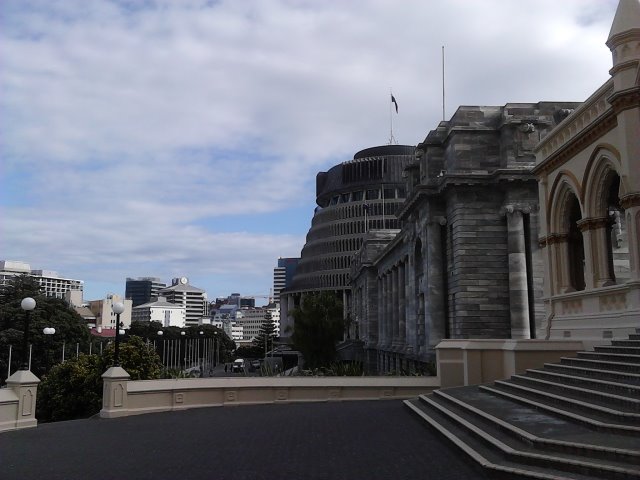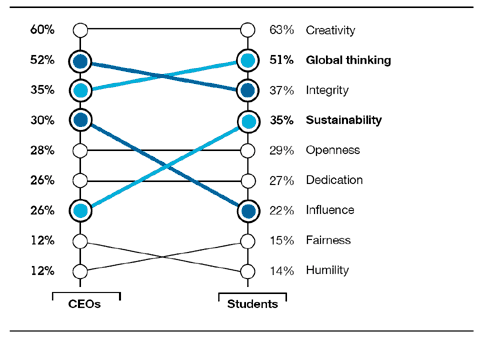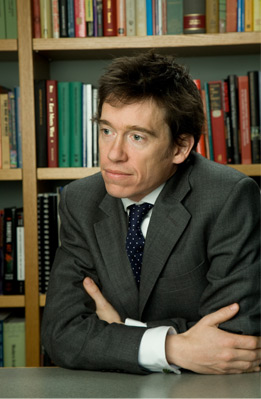
My friend and colleague William Shepherd directed me to a piece at Quartz by Michele Acuto and Parag Khanna, on how cities are driving globalization more than nations—a theme I touched upon on this blog in March 2010. As he said, I had called it three years ago, though admittedly Acuto and Khanna have fleshed things out far better.
It’s not just the fact that cities elicit less pluralistic feelings among the population—Wellingtonians felt pretty strongly when PM John Key made his comment that our city was ‘dying’—but there are practical reasons for cities to lead the way.
First, we can’t afford to wait for central government to take the lead on a lot of policies. When it comes to economic development, cities should be able to mobilize a lot more quickly. The idea is that cities are leaner, flatter and more responsive to change. The reality is that some are mired in bureaucracy, and if voters agree that that has to change, then I would love to see that reflected in this year’s local body elections. Based on what I’ve seen, you won’t find the agent for change within politics, however—they have had more than enough opportunity to voice this very view. This has to come from outside politics, from people who understand what cities are truly capable of, especially when they engage and realize their potential.
Acuto and Khanna cite several examples where cities have had to go above and beyond what their national governments have provided, in the areas of security, climate change and academia. Even stock exchanges are merging between cities:
Stock exchange mergers testify to this changing geography of influence: the popularized link between New York and Frankfurt via the 2011 talks on the NYSE Euronext and Deutsche Boerse merger only hinted at a wider trend that, in the past two years alone, has seen negotiations between London’s and Toronto’s stock exchanges, and similar discussions between Sydney and Singapore, Chicago and Sao Paulo, Dubai and Mumbai or the Shenzhen–Hong Kong–Shanghai triangle, all of which indicate how global finance networks are being redrawn through emerging global cities.
In my discussions with MBIE, the New Zealand Government has been aware of this trend, but other than the discussions about regional reform, very little of it has surfaced in Wellington. Yet the government has a focus on Auckland, and Christchurch will be state of the art once its rebuilding is completed. We have a perfect opportunity to use our inherent agility, if only we had our eyes on the prize, and moved forward rather than played politics, stuck with “think local, act local” thinking.
Secondly, cities should find the task of marketing themselves less confusing. A nation-branding exercise, for example, hits a snag early on. When I quizzed Wally Olins about this many years ago, he identified a very obvious problem: which government department pays for it? Is this the province of tourism, internal affairs, foreign affairs, trade, or something else? A city should be able to establish sufficient channels of communications between its organizations and trust in one—in Wellington’s case, tourism—to handle it. If these channels are broken, again, it’s going to take some new blood and real change to fix them and inspire a spirit of cooperation. There’s a pressing enough need to do so, with a vision that can be readily shared. We need to think differently in the 2010s.
Thirdly, cities can foster offshore relationships more effectively. New Zealand, as a country, has not done as well as it should in promoting itself in various Asian cities, for instance. In one major city, I have had feedback that New Zealand stands out for the wrong reasons, in not having its chief diplomat join other countries in celebrating a particular national holiday. We seem to be on auto-pilot, not being as active as we should. Yet, as Acuto and Khanna point out, almost all global economic activity is being driven by 400 cities. Wellington, especially, should be able to take the initiative and head to the world’s major cities, promoting ourselves and ensuring that the innovators and enterprises here can hook up with others. We can establish trade and cultural links more quickly if we go to the source. Many cities and provinces even have their own economic offices, so they expect such approaches: they want to work at the city level.
And if we head offshore to promote our own, then we should expect that foreign direct investment can flow more effectively inward, too, having established that relationship.
This all makes sense if you consider how democratization has changed the world we live in. On so many things already, we cut out the middle man: in printing, we no longer need to go to typesetters or plate-makers; online publishing has meant our words can go to the public on blogs; social media have allowed us greater access to companies and politicians. Air travel is more affordable than it was 30 years ago. Cities have the resources to engage with citizens and learn about their needs. Offshore relationships can be maintained between trips using Skype and other digital resources. The nation-state will remain relevant for some time, but cities can deliver more relevant, more specialized and more customized programmes in a more timely fashion. Now, do we have the courage to declare that we no longer want “politics as usual” this year?






Oh snap. “Emerging cities are the financial hubs of the future,” eh? Our area (Kennewick, Pasco, Richland and lately, West Richland) is called “emerging” now, and is usually referred collectively by most outsiders as “the Tri-Cities”, although consolidation efforts have failed three or four times. The legacy of the Hanford Project still looms pretty large even as the Department of Energy’s new focus is nuclear waste cleanup, but most of our globalization is still from our agricultural roots, especially in produce and grains. One of our biggest exports is soft winter wheat to Asia for use in crackers and noodles, but the discovery of some Monsanto GMO wheat next door in Oregon state is causing some worries now, as export markets do NOT want that.
Much of our tourism still rotates around the wine industry (the area starts in the Yakima Valley next door and runs through the Columbia Basin), although we do not market that as well as say, California’s Napa Valley.
Jerrod Shelby decided to build a manufacturing location for his super-fast cars in West Richland, his home town. I am not sure what all will come of that.
People vote with their pocketbooks here and seem often in a rut. I think we are dependent on central government, at least for agricultural subsidies and recently, economic stimulus for Hanford. So I have no idea how we will step into this globalization role more, I think especially as not all locals are fond of the idea.